7 Unexpected Ways White Mushrooms Can Spice Up Your Kitchen Game
When it comes to the world of Spice Basics, most people think of cinnamon, chili, or cumin. But what about the humble white mushroom? Yes, that soft, earthy fungus hiding under your lettuce can be a secret spice game-changer. In this article, we’ll explore how white mushrooms bring more than just texture — they add depth, umami richness, and even some surprising chemical tricks that can turn your everyday dishes into gourmet masterpieces.
Table of Contents
- Why White Mushrooms Aren’t Just Filler
- White Mushroom vs Other Spices: A Flavor Comparison
- 7 Practical Tips for Using White Mushrooms as a Spice Substitute
- The Science Behind Mushroom Umami
- How to Store and Prepare White Mushrooms for Maximum Flavor
- Mushroom-Infused Dishes That Will Make You Say 'Wow'
- Common Mistakes When Cooking with White Mushrooms
Why White Mushrooms Aren’t Just Filler
Let’s get one thing straight — white mushrooms are not boring. Sure, they might look like little sponges at first glance, but beneath their pale caps lies a powerhouse of natural flavor compounds. The key player? glutamic acid, the same amino acid responsible for that coveted umami taste found in Parmesan cheese and soy sauce.
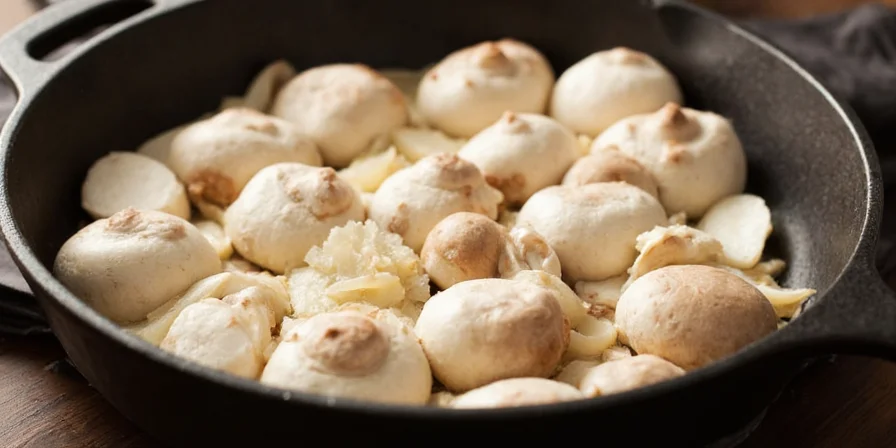
Unlike traditional spices, which often rely on strong aromatics or heat, white mushrooms work subtly, enhancing the flavors already present in your dish. They’re nature’s stealthy flavor booster — kind of like adding bass to a rock song. You may not notice it alone, but you’ll miss it if it's gone.
White Mushroom vs Other Spices: A Flavor Comparison
| Flavor Element | White Mushroom | Garlic Powder | Soy Sauce | Cumin |
|---|---|---|---|---|
| Umami | ★★★★☆ | ★★★☆☆ | ★★★★★ | ★★☆☆☆ |
| Earthy | ★★★★☆ | ★★☆☆☆ | ★☆☆☆☆ | ★★★★★ |
| Pungency | ★☆☆☆☆ | ★★★★☆ | ★★★☆☆ | ★★★★☆ |
| Versatility | ★★★★☆ | ★★★★☆ | ★★★★★ | ★★★☆☆ |
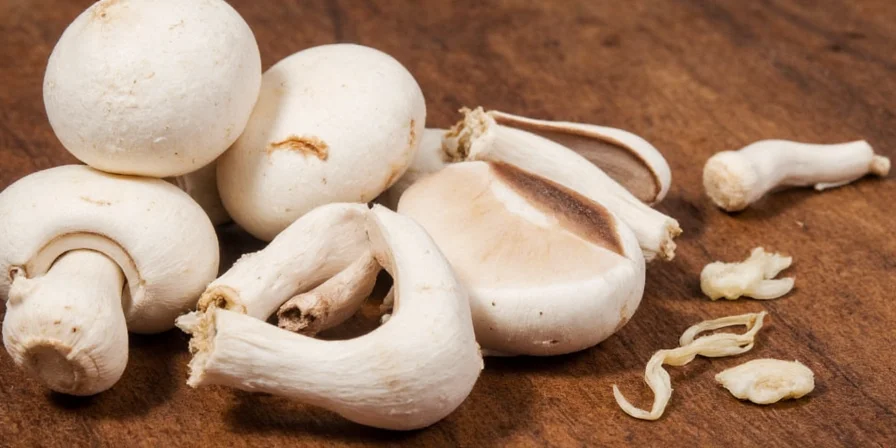
7 Practical Tips for Using White Mushrooms as a Spice Substitute
- Grind them into powder: Dry out white mushrooms completely and blend them into a fine powder. Sprinkle on popcorn, soups, or meat rubs for a quick umami boost.
- Add early in cooking: Unlike salt, mushrooms need time to release their moisture and develop flavor. Throw them into sauces or stews at the beginning of the cook time.
- Use sautéed mushrooms as a base: Sauté finely chopped mushrooms with onions and garlic — they’ll melt into a paste-like consistency that enhances any savory dish.
- Make mushroom-infused oils: Heat dried mushrooms in oil over low flame to extract flavor. Perfect for drizzling on roasted veggies or dipping bread.
- Pair with citrus: The brightness of lemon or lime cuts through the earthiness and makes the umami pop even more.
- Layer with smoked paprika or chili flakes: This creates a dynamic flavor duo — smoky meets earthy.
- Bake into crackers or crisps: Mix powdered mushrooms into dough before baking for an irresistible snack with hidden flavor.
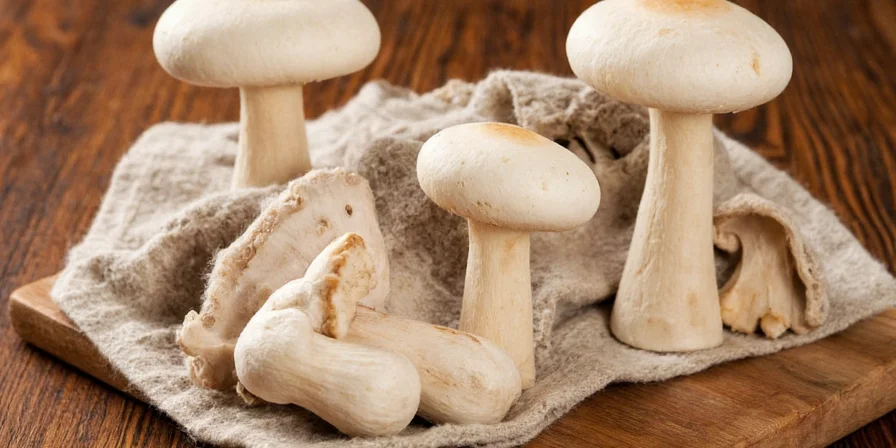
The Science Behind Mushroom Umami
Mushrooms contain two primary compounds that contribute to their signature umami punch: glutamate and guanylate. Glutamate is well-known for its role in creating savory sensations, while guanylate enhances glutamate’s effect by activating additional taste receptors on the tongue. Together, they form a powerful synergy that can intensify the flavor of meats, soups, and even vegetarian dishes.
Did you know? Guanylate is also found in dried shiitake mushrooms and kombu seaweed — both prized ingredients in dashi broth!
How to Store and Prepare White Mushrooms for Maximum Flavor
Proper storage is crucial if you want your white mushrooms to deliver maximum flavor. Here’s how to keep them tasting fresh and punchy:
- Storage: Keep mushrooms in a paper bag inside your fridge. Avoid plastic wrap — mushrooms hate humidity!
- Cleaning: Brush off dirt with a dry cloth or use a quick rinse (don’t soak!). Excess water dilutes flavor and leads to soggy textures.
- Drying: For long-term use, slice thinly and dry in the oven at 150°F (65°C) until crisp. Grind into powder or store whole for broths.
- Preparation Tip: Don’t fear the high heat! Sear mushrooms in a hot pan without oil first to evaporate excess moisture before adding fat — this prevents steaming and maximizes Maillard browning.
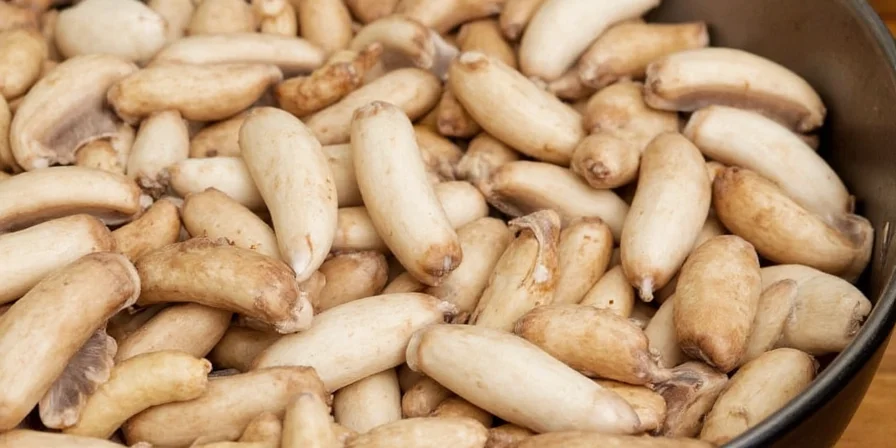
Mushroom-Infused Dishes That Will Make You Say 'Wow'
Ready to put your mushroom knowledge to the test? Here are three simple yet impressive recipes where white mushrooms take center stage:
- Umami Burger: Mix finely chopped raw mushrooms into ground beef. The moisture from the mushrooms creates a juicier patty, and the heat brings out rich, savory notes.
- Mushroom Caesar Dressing: Blend sautéed mushrooms, anchovies, egg yolk, and lemon juice for a creamy, protein-packed dressing with a twist.
- Spiced Mushroom Popcorn: Toss freshly popped corn with mushroom powder, nutritional yeast, and a pinch of smoked paprika for a snack that’s both healthy and addictive.
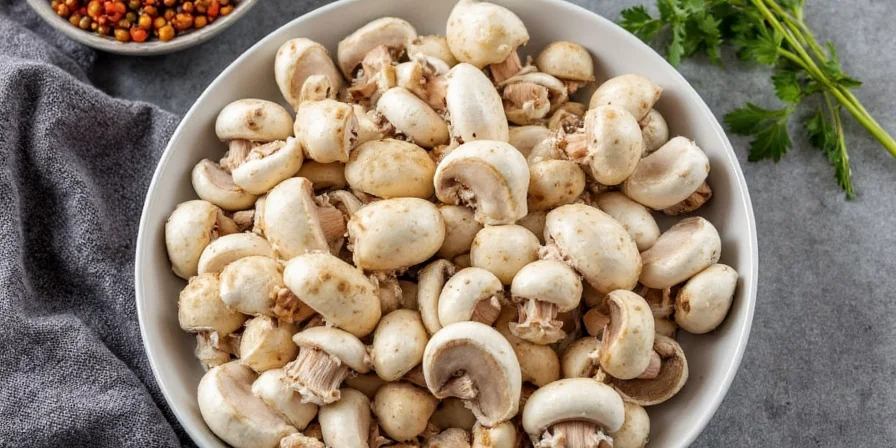
Common Mistakes When Cooking with White Mushrooms
Avoid these common pitfalls to ensure your mushroom magic doesn’t go south:
- Adding oil too soon: Mushrooms release a lot of moisture initially. Let them sweat it out before introducing oil or butter.
- Crowding the pan: Cook in batches to allow space for proper browning. Crowded pans = soggy mushrooms.
- Overcooking delicate dishes: In salads or raw applications, use thinly sliced mushrooms only. Overcooked mushrooms can become rubbery and lose flavor.
- Not seasoning early: Salt should be added during cooking — especially when sautéing — to draw out moisture and enhance caramelization.
- Ignoring pairing potential: Mushrooms love fats, acids, and bold flavors. Don’t be shy with butter, cream, vinegar, or spicy elements.
Conclusion
White mushrooms may seem unassuming, but they pack a serious flavor punch when used right. Whether you’re drying them into powder, sautéing them into sauces, or sneaking them into your burgers, these versatile fungi deserve a spot in your spice arsenal. Next time you reach for that bottle of Worcestershire or a handful of cumin seeds, consider tossing in a few sliced white mushrooms instead — your taste buds (and your guests) will thank you.

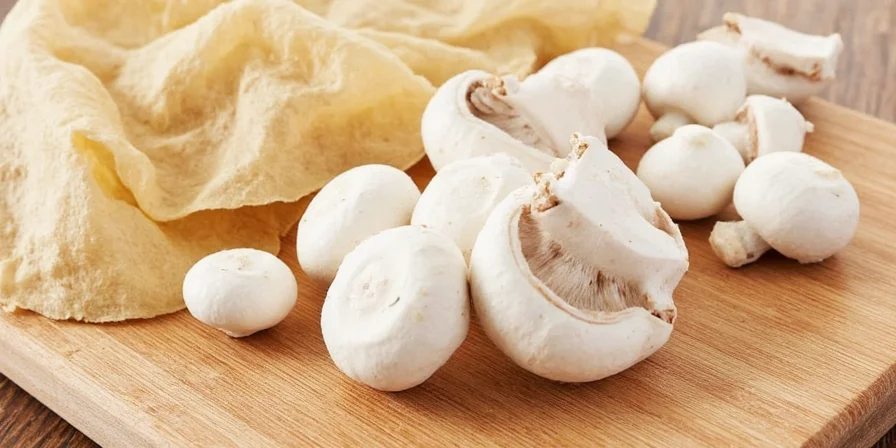









 浙公网安备
33010002000092号
浙公网安备
33010002000092号 浙B2-20120091-4
浙B2-20120091-4